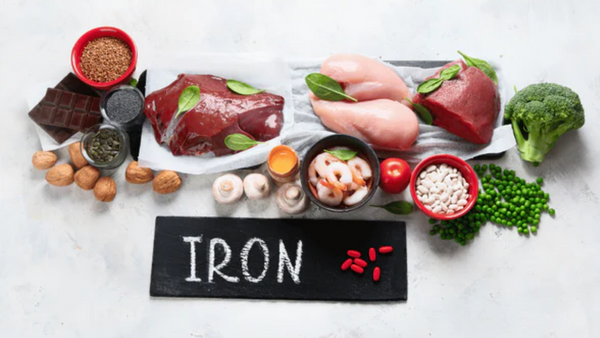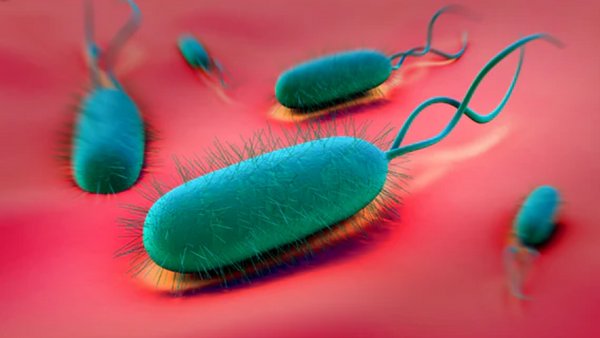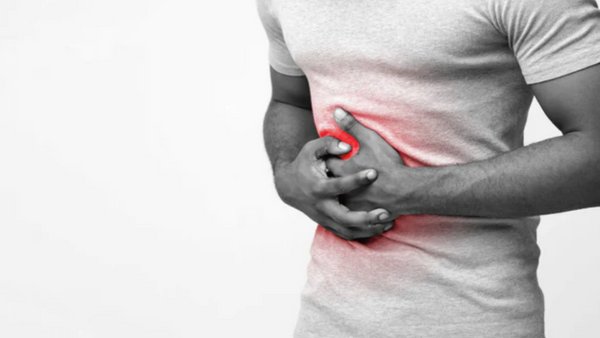Iron is an essential nutrient that we must consume through our diet. Unfortunately, iron is often lacking in our diet. The National Consumption Study II found that 58% of women and 14% of men do not consume the recommended amount of iron. [1]
In this article, you will learn why iron is so important, how to recognize a deficiency and how you can meet your iron needs.
What is iron?
Iron is a trace element that the body only needs in very small amounts. The daily requirement is around 10 to 15 mg, depending on age and gender. [2]
Iron occurs in foods in two different forms: heme iron and non-heme iron. The body can absorb and use heme iron much better than non-heme iron because heme iron has a higher bioavailability.
Heme iron is found in animal foods, while plant foods mainly contain non-heme iron.
What does iron do in the body?
Iron is a component of hemoglobin, the blood pigment that gives our blood its red color. As part of hemoglobin, iron is needed for blood formation and oxygen transport. [3]
But iron has many other functions. It is involved in the construction of nerve cells and is therefore important for cognitive function and memory. [4]
Iron also has important functions in energy metabolism, as many enzymes in energy metabolism contain iron.
A good supply of iron is also needed for the immune system. [5]
Iron is also involved in the formation of proteins and therefore has important functions in cell division.
The European Food Safety Authority confirms the following health claims for iron: [6]
- Iron contributes to normal cognitive function
- Iron contributes to normal energy metabolism
- Iron contributes to the normal formation of red blood cells and hemoglobin
- Iron contributes to normal oxygen transport in the body
- Iron contributes to the normal functioning of the immune system
- Iron helps reduce tiredness and fatigue
- Iron has a function in cell division
These are the symptoms of iron deficiency
Iron deficiency manifests itself through the following symptoms:
- paleness
- fatigue
- Difficulty concentrating
- shortness of breath
- Brittle hair and nails
- Cracked and dry skin
Severe iron deficiency leads to anemia (iron deficiency anemia). This manifests itself in: [7]
- Severe fatigue
- Cracked corners of the mouth
- Headache
- Shortness of breath
- Heart palpitations
- Hearing and vision problems

Causes of iron deficiency
People with increased iron requirements are at high risk for iron deficiency. These include menstruating women, pregnant and breastfeeding women , growing children and adolescents, and competitive athletes .
People who eat a diet low in iron also have a high risk of iron deficiency. Since animal heme iron has a significantly better bioavailability than plant-based non-heme iron, vegans and vegetarians are often affected by iron deficiency.
In addition, impaired iron absorption can lead to iron deficiency. Chronic inflammatory bowel diseases, for example, can significantly impair iron absorption.
The consumption of certain foods can also hinder iron absorption and promote iron deficiency. [8]
This includes:
- caffeine
- Phytic acid in cereals and legumes
- Oxalic acid from green leafy vegetables, rhubarb and cocoa
- Phosphates in ready meals and lemonades
- Calcium
Foods with the highest iron content
Iron is found in many foods. Here are the best sources of iron: [9]
- Cocoa: 13.9 mg/100 g
- Hemp seeds: 7.95 mg/100 g
- Liver: 7.4 mg/100 g
- Cashews: 6.68 mg/100 g
- Squid: 6.02 mg/100 g
- Goose: 5.91 mg/100 g
- Oysters: 5.78 mg/100 g
- Beef: 5.46 mg/100 g
- Hazelnuts: 4.7 mg/100 g

Cover your iron needs with iron supplements
If the iron requirement cannot be met through food, taking iron supplements makes sense.
You can tell that an iron supplement is good because it does not contain any unnecessary additives such as colorings, sweeteners, binding agents, release agents and artificial preservatives. Also make sure that it is made in Germany. Iron supplements should also contain vitamin C , as vitamin C significantly improves the absorption of iron. [10]
Iron is best absorbed on an empty stomach and should be taken 2-3 hours before eating.
Conclusion: Iron deficiency is widespread
Iron deficiency is one of the most common nutritional deficiencies. Women who do not consume much iron through their diet are particularly affected by iron deficiency. If the iron requirement cannot be met through food, taking iron supplements can be useful.
[1] https://www.mri.bund.de/fileadmin/MRI/Institute/EV/NVSII_Final Report_Part_2.pdf
[2] https://www.dge.de/forschung/referenzwerte/eisen/?L=0
[3] https://www.ncbi.nlm.nih.gov/pmc/articles/PMC3999603/
[4] https://pubmed.ncbi.nlm.nih.gov/20100340/
[5] https://www.ncbi.nlm.nih.gov/pmc/articles/PMC3173740/
[6] https://eur-lex.europa.eu/LexUriServ/LexUriServ.do?uri=OJ:L:2012:136:0001:0040:de:PDF
[7] https://www.ncbi.nlm.nih.gov/books/NBK448065/
[8] https://pubmed.ncbi.nlm.nih.gov/21462105/
[9] https://nutritiondata.self.com/foods-000119000000000000000-w.html

















